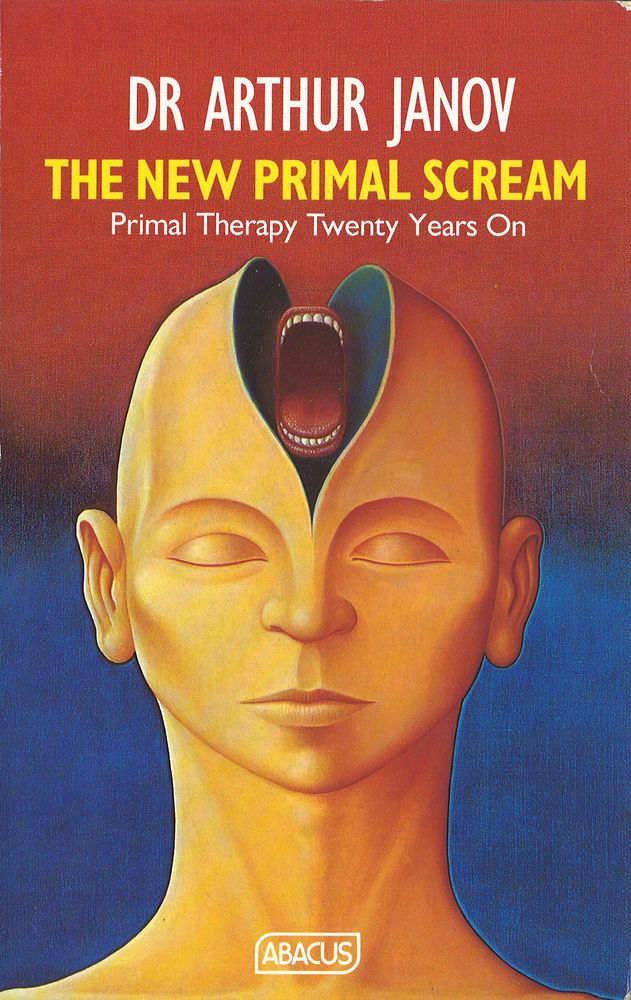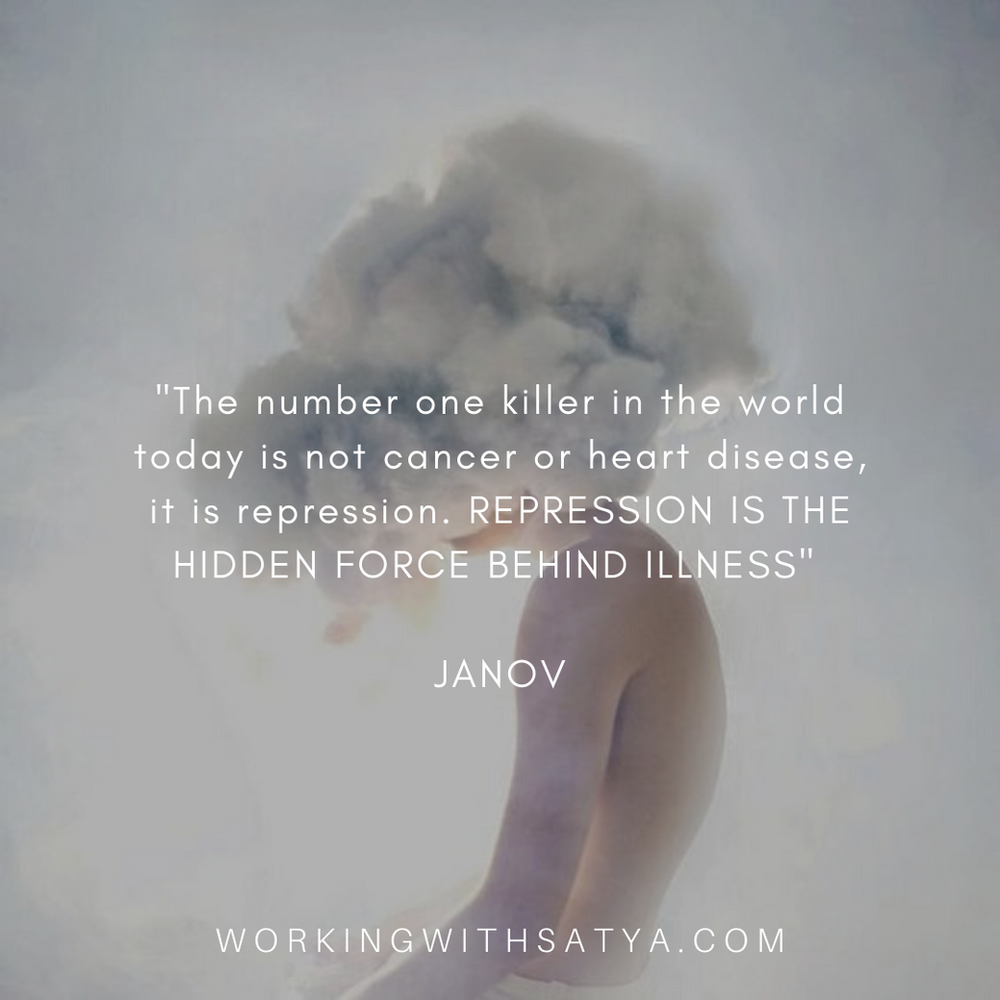The Primal Pain
Feb 15, 2022
PRIMAL THEORY & THERAPY BY DR. ARTHUR JANOV

Primal therapy is a form of psychotherapy centered around trauma. Its creator, Arthur Janov, believed that repressed memories and pain from your childhood was the cause of neurosis. To relieve the pain, it needs to be brought into the conscious, and to do that, Janov believed that the patient must be able to reenact their past. To re-experience the past, it was believed that one must do so through complete, unfiltered screaming or violence. As the name implies, it's supposed to treat you by reverting you to your primal instincts.
"There is one neurosis, many manifestations and one cure "feeling." - ARTHUR JANOV
REPRESSED PAIN divides the self in two and each side wars with the other.
One is the real self, loaded with needs and pain that are submerged;
the other is the unreal self that attempts to deal with the outside world by trying to fulfill unmet needs with neurotic habits or behaviors such as obsessions or addictions.
The split of the self is the essence of neurosis and neurosis can kill.
THE PRIMAL PAIN: That pain is the result of needs and feelings that have gone unfulfilled in early life. Those early unmet needs create what Janov would call Primal Pain. The Pain goes unfelt at the time, childhood, because the body is not equipped to experience it fully and deal with it. When the Pain is too much, it is repressed and stored away. When enough unresolved Pain has occurred, we lose access to your feelings and become neurotic.

PRIMAL PAIN. Those deep hurts. Primal Pains are the needs and feelings which are repressed or denied by consciousness. They hurt because they have not been allowed expression or fulfillment. These Pains all add up to: I am not loved and have no hope of love when I am really myself.
According to Janov, pain is not physical, hurting pain. Instead, it's suffering by repression. It's an emotional pain that is hard to express if you will.
REPRESSED PAIN AND UNMET NEEDS OF THE CHILD AND IT CONSEQUENCES We all are creatures of need. We are born needing.
At first the infant will do everything in his power to fulfill his needs: He will reach up to be held, cry when he is hungry, kick his legs, and thrash about to have his needs recognized.
If his needs go unfulfilled for a length of time, if he is not held, changed or fed, he will suffer continuous pain either until he can do something to get his parents to satisfy him or until he shuts off the pain by shutting off his need.
If his pain is drastic enough, death may intervene, as shown in studies of some institutional babies.
SINCE THE INFANT CANNOT HIMSELF OVERCOME THE SENSATION OF HUNGER (THAT IS, HE CANNOT GO TO THE REFRIGERATOR) OR FIND SUBSTITUTE AFFECTION, HE MUST SEPARATE HIS SENSATIONS (HUNGER, WANTING TO BE HELD) FROM CONSCIOUSNESS.
THE SPLIT: This separation of oneself from one's needs and feelings is an instinctive maneuver in order to shut off excessive pain. The organism splits in order to protect its continuity.
CONSEQUENCES:
This does not mean that unfulfilled needs disappear, however.
On the contrary, they continue throughout life exerting a force, channeling interests, and producing motivation toward the satisfaction of those needs.
But because of their pain, the needs have been suppressed in the consciousness, and so the individual must pursue substitute gratifications.
He must, in short, pursue the satisfaction of his needs symbolically. Because he was not allowed to express himself, he may be compelled to try to get others to listen and understand him later in life.
Their sensations become relocated to areas where greater control or relief can be provided.
In order for real needs to be satisfied, they must be felt and experienced. Unfortunately, pain has caused those needs to be buried. When they are buried, the organism goes into a continuous state of emergency alert. THAT ALERT STATE IS TENSION. It propels the infant, and later the adult, toward the satisfaction of need in any way possible. This emergency alert is necessary to ensure the infant's survival; if he were to give up hope of ever having his needs fulfilled, he might die.
UNFULFILLED NEEDS SUPERSEDE ANY OTHER ACTIVITY IN THE HUMAN UNTIL THEY ARE MET.
When needs are met, the child can feel. he can experience his body and his environment.
When needs are not met, the child experiences only tension, which is feeling disconnected from consciousness.
Without that necessary connection, the neurotic does not feel. Neurosis is the pathology of feeling.
THE ORGANISM CONTINUES TO LIVE AT ANY COST, AND THAT COST IS USUALLY NEUROSIS--SHUTTING DOWN UNMET BODILY NEEDS AND FEELINGS BECAUSE THE PAIN IS TOO GREAT TO WITHSTAND.
NEUROSIS IS A SYMBOLIC BEHAVIOR IN DEFENSE AGAINST EXCESSIVE PSYCHOBIOLOGIC PAIN. Neurosis is self-perpetuating because symbolic satisfactions cannot fulfill real needs.
THE MAJOR REASON JANOV HAVE FOUND THAT CHILDREN BECOME NEUROTIC IS THAT THEIR PARENTS ARE TOO BUSY STRUGGLING WITH UNMET INFANTILE NEEDS OF THEIR OWN.
THE WAY TO WORK WITH IT: Feeling the repressed pain and giving the space, time and attention that it needs to be seen can lead to the end of suffering and expansion of deep awareness.
THE REAL SELF: The real self is the real needs and feelings of the organism.
THE UNREAL SELF: The unreal self is the cover of those feelings and becomes the facade required by neurotic parents in order to fulfill needs of their own.
Resources:
Stay connected with news and updates!
Join our mailing list to receive the latest news and updates from our team.
Don't worry, your information will not be shared.

